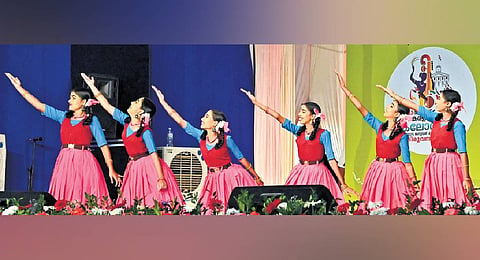

THIRUVANANTHAPURAM: They were proud of their school, which was located in a scenic corner in the Vellarmala valley of Chooralmala. Classes were mostly al fresco on one of the banks of the Punnapuzha, which flowed uneventfully past GVHSS Vellarmala.
Unnikrishnan V, their Malayalam teacher, would teach them poems and stories with the flow of the river water adding another layer of calm that enveloped all. “It was our piece of heaven. Something we lost in the devastation that unfolded last July 30 when the swollen river gobbled up our school and 33 of our schoolmates,” says Rushika Breshnov, a class 8 student of the school, which now functions from a makeshift facility in Meppadi.
The tragedy may have started to fade from the memory of the world, but for residents who survived the landslides, the grief lingers like a festering wound. “It was horrible to see our home being washed away. We lost everything, but thankfully none of the family members. My daughter still grieves for some of her schoolmates who lost their lives,” says Soumya, Rushika’s mother.
In the immediate aftermath of the tragedy, a song with an earthy tune nostalgic and naive celebrating the school was doing the rounds. It talked about GVHSS Vellarmala as an oasis of rural innocence and freshness.
The visuals that were captured for the song’s video, which contrasted the happy times and the current state, were grim and heartrending. Yet its writer, Unni mash, the Malayalam teacher, never gave up hope. He brought students together to send a message of hope not just for Chooralmala but those who have suffered a similar fate elsewhere.
The vision paid off on Saturday, at the opening of the 63rd State Kalolsavam, where the students presented a dance that narrated the story of their institution, the agony of the landslides, and the hope that they will emerge stronger from the crises.
“I was tasked with choreographing the recital. This was a challenge as we had little time, the girls were mostly untrained, and facilities for practice were minimal. But I was told about the fervour of Unni mash and Vylopilly Narayanan Kutty, who wrote the song. I took it upon myself to do it for the people whose grit deserved kudos.
The entire song was choreographed in folk style, the song tuned to the Ragamalika with a Madhyamavati ending to rhyme with the famous song on the school written and sung by Unni mash. The colours of the costume were also based on the school uniform,” says Anil Vettikathiri, a kuchipudi performer and dance teacher whose wards have performed at previous kalolsavams.
However, containing the emotions of the dancers as they prepared for the performance proved a challenge. “As we portrayed the scenes of the landslide, my mind felt the pangs of fear that had gripped me as we ran away from the rushing sand and rocks as we lost my mother for a while. I walked into a piece of iron that pierced my leg. I still carry the marks,” says Rushika, pointing to the injury.
The group was roundly felicitated for the performance. For Unni mash, this was a tribute to his students who sat by the river listening to his lectures. “I would never blame the river for harming us.
She was stretched to her limits. What we can do now is let the matter rest and see how the students can be motivated to do their best. Tomorrow is always beautiful, and that is what the children should be taught to face life and its many landslides,” Unni mash says, with a smile.